A Bangladeshi teen’s time at CERN
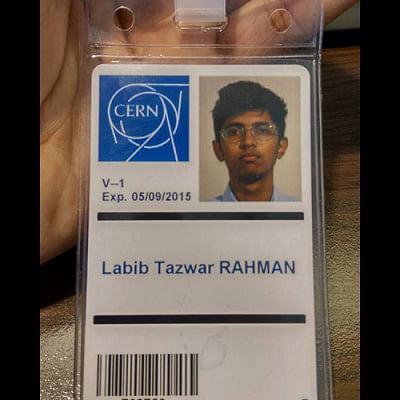
The Daily Star caught up with Labib after his week long time working at Cern.
TDS: Tell us a little bit about yourself, your interests and motivations.
Labib: I am a 17-year old physics enthusiast. After completing my SSC from St. Joseph Higher Secondary School in 2015, I'm now studying for my A-levels at Academia.
My interests range from reading non-fiction to scientific papers on high-energy physics (although I barely understand most of it). But my field of research until now has been aerospace and water-science.
I feel compelled to break the invisible glass barrier that exists between the "abled" and "special" children in our society. Towards this end, I run an organisation called InclusionX, which runs bi-monthly sessions on Saturdays, where students from any institution can spend a day in a school for people with disabilities.
TDS: How did you come to be working for CERN?
Labib: A group of three consisting of my friends and me were selected as a Top 6 team in the Aerospace and Aviation category of the Conrad Spirit of Innovation Challenge 2015 held at the NASA Kennedy Space Center this April. There I made friends with a student from Delhi named Abhishek Anand who had previously done a similar program at CERN. He introduced me to Dr Archana Sharma, a staff physicist at CERN. I wrote to her and sent her my resume.
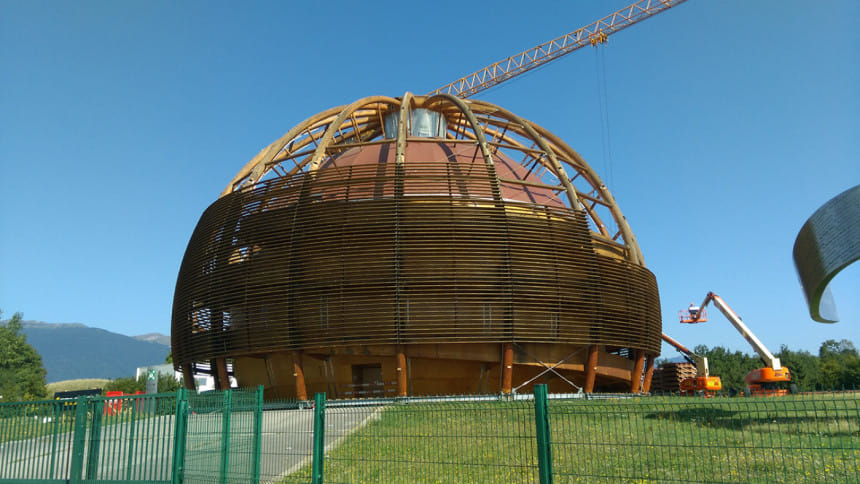
After that, I had to go through multiple layers of procedures with the organisation's Compact Muon Solenoid (CMS) Secretariat and finally, after what seemed like forever, I got the letter.
TDS: In what capacity and for how long were you working there?
Labib: I was there as an associate member of the CMS personnel for a week. My supervisor Dr Archana offered me to stay much longer; I couldn't as I had to come back to attend school.
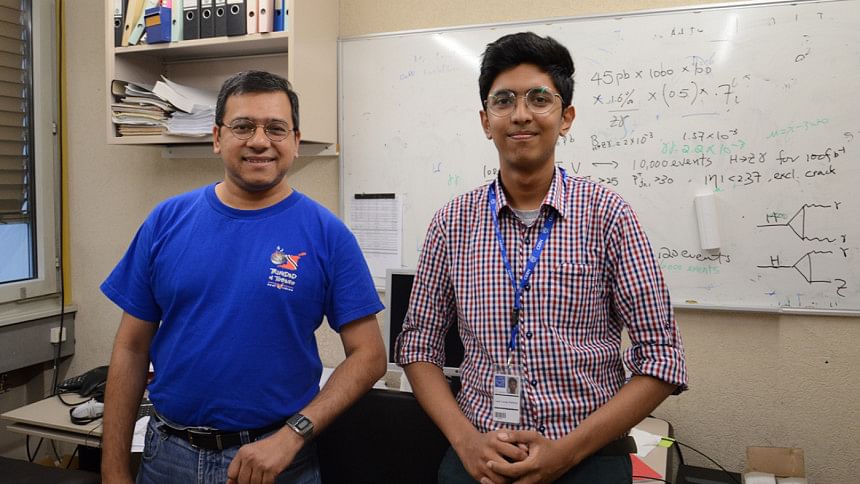
I was given multiple tasks of which modelling a CMS Gas Electron Multiplier (GEM) to be exhibited at CERN's Microcosm Museum was the prime one. But due to technical difficulties, I couldn't get the required material. I prepared a document on 'Fast Micro-pattern Gaseous detectors with Applications beyond Particle Physics' instead, which is going to get printed at an annual publication of CERN for summer students. I also rewrote the exhibit labels of the old particle accelerators of the museum, briefly describing the science behind them with illustration.
During my stay, whenever I was free, my supervisor Dr Archana would drive me to the French side of CERN where her lab was. On the first day, I helped a physicist set up a gas pipe on a structure 10 feet from the ground. The remaining time, I extensively learnt about the mechanisms of GEM from him.
TDS: What was your most memorable event from CERN?
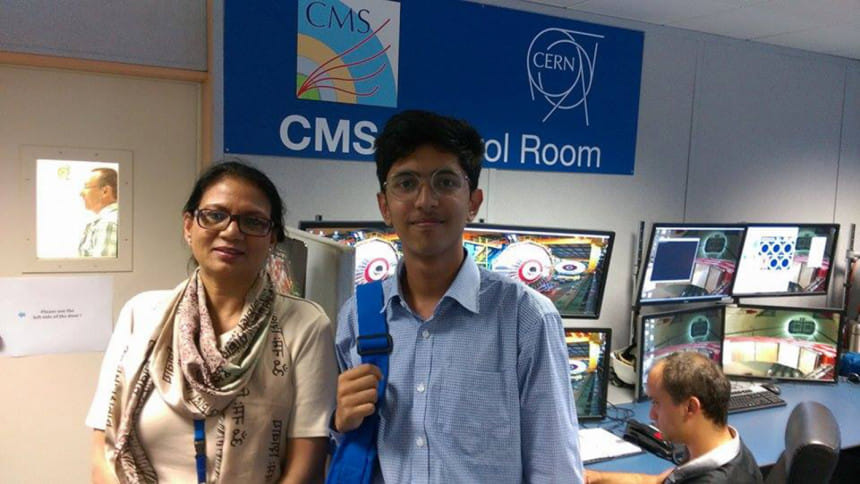
For many years, I had dreamt of working at the world's largest particle physics laboratory. But astonishingly, a particular lunch at the cafeteria was much more memorable than living my dream. It was with a technical student named Amine. From childhood, he had difficulties in controlling the left part of his body. A distance of 10 meters was quite impossible for him to walk until high-school. He couldn't play football with his friends but this could never discourage him. So he remained indoors and discovered the computer on his own. "If I were able to play football," he told me, "would I have learnt programming?" It was inspiring to see how he turned his biggest weakness into his greatest strength – a fact evident as he is now developing a software for CERN.
TDS: What did you learn from your experience there – both professionally and personally?
Labib: To summarise - I learnt to avoid distractions as much as possible while working; break big goals into shorter ones; respect professional commitment and keep working harder each day. At CERN, nobody cares whether you wear a burkha or have a mohawk haircut or really childish eyewear; they only care about how much you can contribute to the advancement of science. This, coupled with the teachings of humility from the top scientists of the world, are things that I want to carry with me for the rest of my life.
TDS: What idea did you have of CERN before, that you now realise was incorrect?
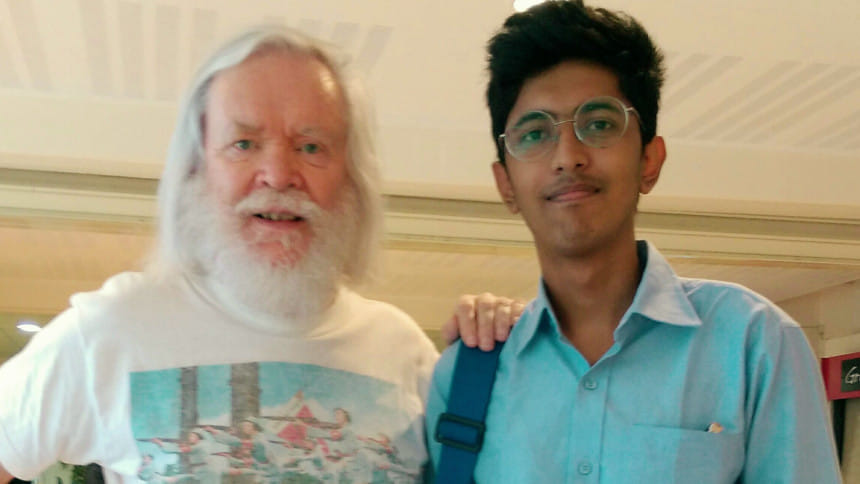
Labib: Firstly, I made the mistake of even assuming that I would not be taken seriously.
Secondly, that they had connections with the Illuminati.
TDS: What are your aims and if you pursue a career in this field, what would you like to focus on?
Labib: Honestly, I'm not sure. But about concentrating on a particular field – I want to pursure aerospace or theoretical physics. The life of a researcher fascinates me.

 For all latest news, follow The Daily Star's Google News channel.
For all latest news, follow The Daily Star's Google News channel. 



Comments